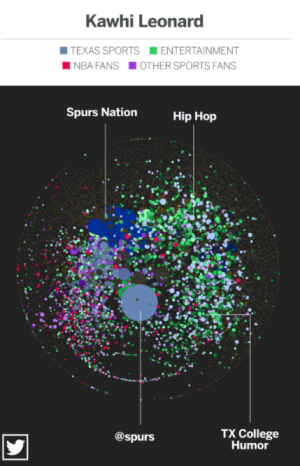 Graphika creates dynamic maps of network relationships to reveal deep insights into social influence for content planning and audience engagement. Its client list includes documentary filmmakers interested in certain aspects of online market research and national broadcasters such as ESPN. DV Info Net guest contributor Madeline Ward interviews CEO John Kelly about his company’s first experience at NAB2018 and Graphika’s role in monitoring, mapping and analyzing the social media landscape. The interview was conducted at Graphika’s office in Manhattan about a month after NAB2018.
Graphika creates dynamic maps of network relationships to reveal deep insights into social influence for content planning and audience engagement. Its client list includes documentary filmmakers interested in certain aspects of online market research and national broadcasters such as ESPN. DV Info Net guest contributor Madeline Ward interviews CEO John Kelly about his company’s first experience at NAB2018 and Graphika’s role in monitoring, mapping and analyzing the social media landscape. The interview was conducted at Graphika’s office in Manhattan about a month after NAB2018.
Shortly after the U.S. presidential election of 2016, Graphika was hired by academic and corporate clients to track the proliferation of “fake news” online. Details about that experience are covered in the latter half of an extensive article by Jim Rutenberg for The New York Times on 23 Sep. 2017, entitled “RT, Sputnik and Russia’s New Theory of War.”

Image by Graphika.
In just a very short time during its recent history, Graphika has transitioned from the relatively innocuous work it has done for documentary filmmakers to a more serious role of tracking and analyzing political disinformation campaigns, including what Kelly describes as “clear evidence of coordinated manipulation” in Paul Lewis and Erin McCormick’s article “How An Ex-YouTube Insider Investigated Its Secret Algorithm”, which is a follow-up to The Guardian’s “Fiction Is Outperforming Reality: How YouTube’s Algorithm Distorts Truth” from 2 Feb. 2018.
Graphika continues to identify the key influencers in the social media sphere. While 2018 was the company’s first year to exhibit at NAB, it constantly maintains a discerning watchful eye on the patterns that shape today’s constantly changing cyber-geography.
